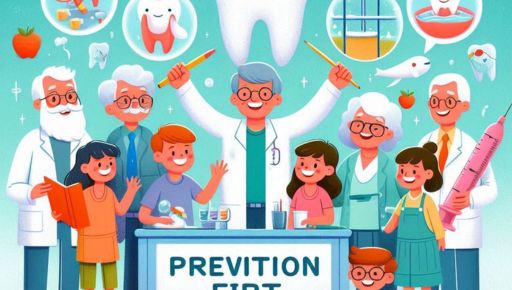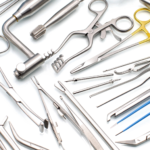
Preventive dental care is the cornerstone of a healthy, beautiful smile. By incorporating simple habits into your daily routine and scheduling regular visits with a dentist in Stouffville, you can avoid painful and costly dental problems, boost self-confidence, and maintain optimal oral health. An experienced dentist can provide personalized guidance on preventive care, helping protect your teeth and gums from decay, disease, and damage. From routine cleanings and check-ups to advanced preventive treatments, a dentist is your partner in achieving a lifetime of optimal oral wellness.
Why Does Preventive Dental Care Matter?
Preventive dental care matters for numerous reasons, encompassing oral health, overall well-being, and financial benefits. Here are some key reasons:
Oral Health Benefits
- Prevents Tooth Decay: Regular cleanings and fluoride treatments help prevent cavities.
- Reduces Gum Disease Risk: Preventive care helps prevent gingivitis and periodontitis.
- Maintains Healthy Gums: Preventive care promotes healthy gums, essential for tooth support.
- Detects Oral Issues Early: Regular check-ups help identify problems before they become severe.
Overall Well-being Benefits
- Links to Systemic Health: Research connects oral health to diabetes, heart disease, and other systemic conditions.
- Boosts Self-Confidence: A healthy smile enhances self-esteem and overall quality of life.
- Reduces Pain and Discomfort: Preventive care helps avoid painful dental procedures.
- Improves Nutrition: Good oral health enables proper chewing and digestion.
Financial Benefits
- Saves Money: Preventive care reduces the need for costly dental work.
- Reduces Emergency Visits: Regular check-ups minimize unexpected dental emergencies.
- Lowers Risk of Complications: Preventive care decreases the risk of complex, expensive treatments.
- Optimizes Dental Insurance: Regular preventive care is often covered by insurance.
Additional Benefits
- Enhances Quality of Life
- Increases Productivity
- Supports Overall Health
- Promotes Healthy Habits
What Are The Daily Habits for Preventive Dental Care?
Here are the daily habits for preventive dental care for optimal oral health and wellness:
Morning Habits
- Brush teeth for 2 minutes with fluoride toothpaste
- Use a soft-bristled toothbrush
- Pay special attention to areas where teeth and gums meet
- Rinse mouth with water
Evening Habits
- Brush your teeth again before bed
- Floss once a day to remove food particles and plaque
- Rinse with antibacterial mouthwash (optional)
- Clean tongue and roof of the mouth
Additional Habits
- Limit sugary and acidic foods/drinks
- Drink plenty of water
- Avoid tobacco products
- Visit a dentist every 6 months
Tips for Effective Brushing
- Use gentle circular motions
- Replace toothbrush every 3-4 months
- Choose ADA-approved toothpaste
- Brush all surfaces of teeth
Tips for Effective Flossing
- Use 18-24 inches of floss
- Curve floss around each tooth
- Slide floss under the gum line
- Rinse with water
What Is The Importance of Regular Dental Visits in Preventive Care?
Regular dental visits play a crucial role in preventive care, enabling dentists to identify and address oral health issues before they become severe. These visits typically occur every six months and involve thorough cleanings, examinations, and diagnostic tests. By attending regular dental visits, individuals can benefit from:
- Removal of plaque and tartar
- Detection of tooth decay, gum disease, and oral cancer
- Prevention of gum disease progression
- Early intervention for orthodontic issues
- Personalized oral hygiene guidance
- Fluoride treatments and sealants for added protection
- Enhanced overall health and well-being.
Additional Preventive Measures
Some effective and additional prevention oral measures include the following:
- Sealants: Apply sealants to molars to prevent decay.
- Fluoride varnish: Receive fluoride varnish applications.
- Mouthguards: Wear mouthguards during sports or high-impact activities.
- Oral hygiene products: Use ADA-approved toothpaste, toothbrushes, and floss.
The Role of Dentists in Preventive Care
Dentists play a crucial role in preventive care by:
- Conducting thorough exams and cleanings.
- Providing personalized oral health advice.
- Detecting issues early on.
- Offering preventive treatments.
Preventive dental care is a simple yet effective way to maintain good oral health. By incorporating daily habits and regular dental visits into your routine, you can avoid costly and painful dental problems. Remember, prevention is key to a healthy, beautiful smile.














